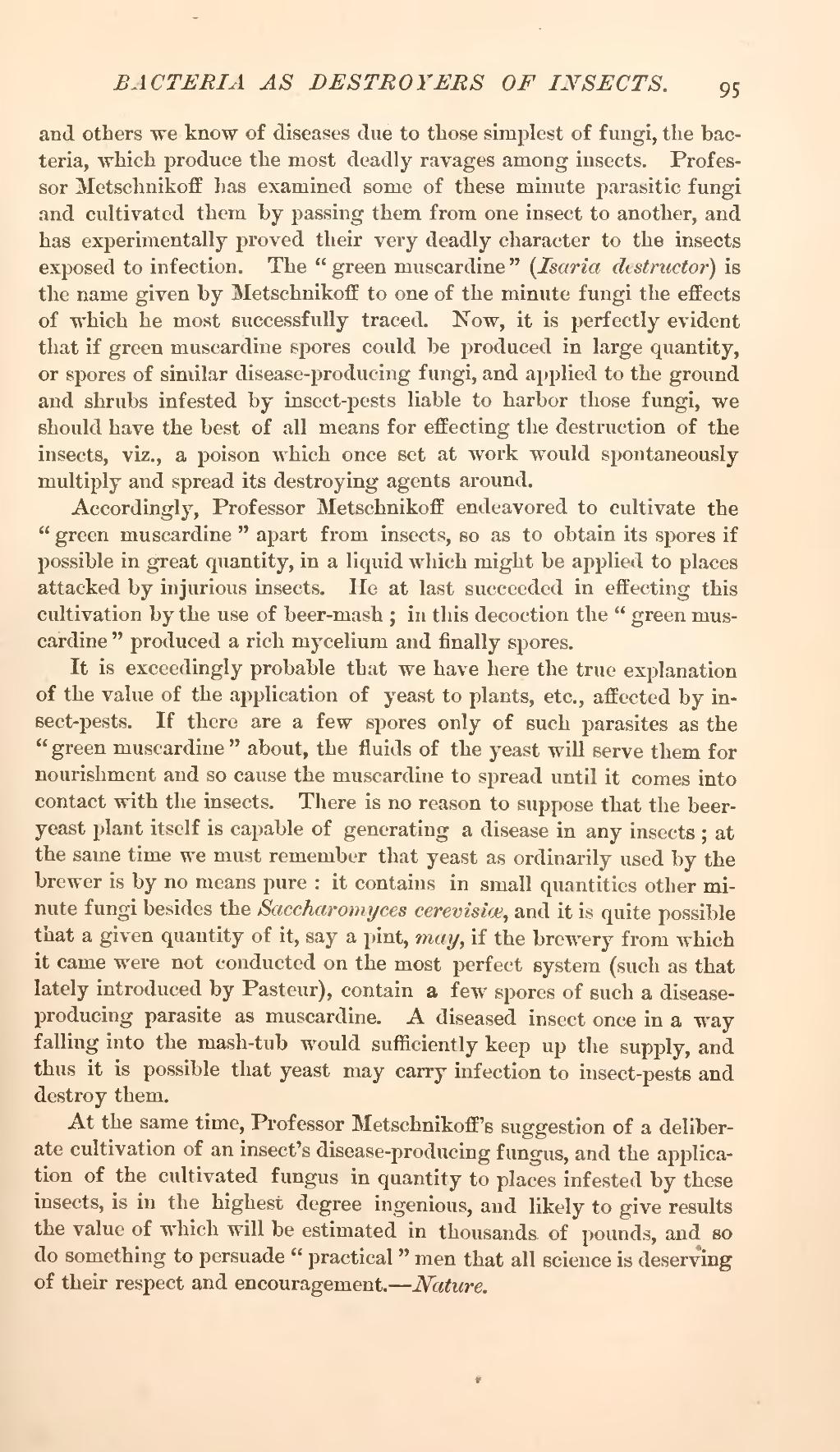and others we know of diseases due to those simplest of fungi, the bacteria, which produce the most deadly ravages among insects. Professor Metschnikoff has examined some of these minute parasitic fungi and cultivated them by passing them from one insect to another, and has experimentally proved their very deadly character to the insects exposed to infection. The "green muscardine" (Isaria destructor) is the name given by Metschnikoff to one of the minute fungi the effects of which he most successfully traced. Now, it is perfectly evident that if green muscardine spores could be produced in large quantity, or spores of similar disease-producing fungi, and applied to the ground and shrubs infested by insect-pests liable to harbor those fungi, we should have the best of all means for effecting the destruction of the insects, viz., a poison which once set at work would spontaneously multiply and spread its destroying agents around.
Accordingly, Professor Metschnikoff endeavored to cultivate the "green muscardine" apart from insects, so as to obtain its spores if possible in great quantity, in a liquid which might be applied to places attacked by injurious insects. He at last succeeded in effecting this cultivation by the use of beer-mash; in this decoction the "green muscardine" produced a rich mycelium and finally spores.
It is exceedingly probable that we have here the true explanation of the value of the application of yeast to plants, etc., affected by insect-pests. If there are a few spores only of such parasites as the "green muscardine" about, the fluids of the yeast will serve them for nourishment and so cause the muscardine to spread until it comes into contact with the insects. There is no reason to suppose that the beer-yeast plant itself is capable of generating a disease in any insects; at the same time we must remember that yeast as ordinarily used by the brewer is by no means pure: it contains in small quantities other minute fungi besides the Saccharomyces cerevisiæ, and it is quite possible that a given quantity of it, say a pint, may, if the brewery from which it came were not conducted on the most perfect system (such as that lately introduced by Pasteur), contain a few spores of such a disease-producing parasite as muscardine. A diseased insect once in a way falling into the mash-tub would sufficiently keep up the supply, and thus it is possible that yeast may carry infection to insect-pests and destroy them.
At the same time, Professor Metschnikoff's suggestion of a deliberate cultivation of an insect's disease-producing fungus, and the application of the cultivated fungus in quantity to places infested by these insects, is in the highest degree ingenious, and likely to give results the value of which will be estimated in thousands, of pounds, and so do something to persuade "practical" men that all science is deserving of their respect and encouragement.—Nature.

